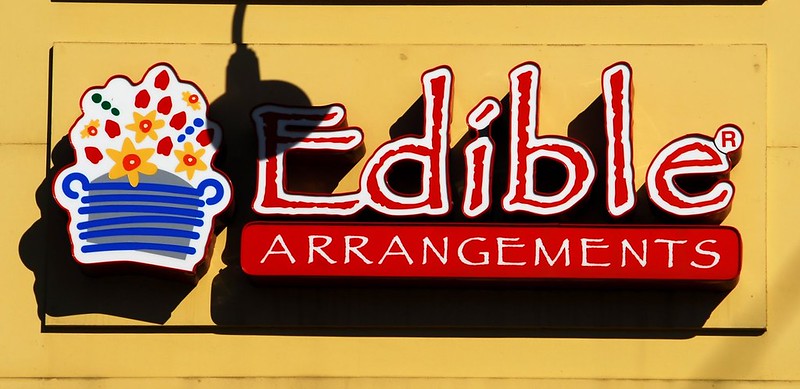Edible Arrangements Accused of Illegal Text Spamming
Posted Wed, 2016-04-13 12:42 by Janet Sparks

WALLINGFORD, Conn. – A putative class action lawsuit was filed last week against Edible Arrangements claiming the franchisor sent mass unauthorized automated text messages to consumer cell phones in marketing its fruit and candy bouquets, which is a clear violation of federal law.
The lawsuit highlights the seriousness of the problem, prefacing its allegations with this statement: “Wireless spam is a growing problem in the United States. In April 2012, the Pew Research Center found that 69 percent of texters reported receiving unwanted spam text messages, while 25 percent reported receiving spam texts weekly.” The complaint further states that a New York Times article reported that consumers received roughly 4.5 billion spam text in 2011, more than double the 2.2 billion received in 2009.”
Connecticut-based Edible Arrangements, a seasoned company operating 1,200 stores globally with over 1000 in the U.S., sells and markets fruit arrangements and bouquets to customers through its franchise operations. In an effort to market its franchisees’ products, Edible established an automated text messaging program, which offered discounts to consumers via automated text messages to their cellular telephones. The problem? Edible lacked the prior express written consent required by the Telephone Consumer Protection Act (TCPA) to send consumers the automated text messages.
 The lawsuit explains that the TCPA regulates, among other things, the use of automated telephone dialing systems, referred to as “ATDS.” The Act prohibits any call using an ATDS to a cellular phone without prior express consent by the person being called, unless the call is for emergency purposes. ATDS is defined as equipment having the capacity to store or produce telephone numbers to be called, using a random or sequential number generator, and to dial such numbers.
The lawsuit explains that the TCPA regulates, among other things, the use of automated telephone dialing systems, referred to as “ATDS.” The Act prohibits any call using an ATDS to a cellular phone without prior express consent by the person being called, unless the call is for emergency purposes. ATDS is defined as equipment having the capacity to store or produce telephone numbers to be called, using a random or sequential number generator, and to dial such numbers.In 2015, the Federal Communications Commission reaffirmed its long-standing position on the ATDS definition. It said the Commission has already twice addressed the issue in 2003 and 2008, stating that autodialers need only have the “capacity” to dial random and sequential numbers, rather than the “present ability” to do so. It states, “Hence, any equipment that has the requisite “capacity” is an autodialer and is therefore subject to the TCPA.”
The complaint explains that prior express written consent is required before making automated telemarketing calls, meaning there must be a written agreement, signed by the person receiving the call or text. And it must be with a “clear and conspicuous disclosure” that specifically authorizes the seller to send telemarketing communications using an automatic dialer or an artificial or prerecorded voice.
Plaintiff, non-customer of Edible Arrangements, says privacy violated
The lawsuit asserts that Edible Arrangements began placing text messages to the cell phone of consumer Christopher DiStasio, the lead plaintiff in the case, within the last four years. One automated message, made with ATDS, read “Edible: Save 20% on your Easter basket! The perfect dessert for kids & the whole family—order today!” The ATDS had the capacity to store or produce telephone numbers to be texted, using a random or sequential number generator, or from a database of numbers, to text thousands of such numbers without human intervention.
The document states that plaintiff DiStasio had never been a customer of Edible Arrangements, and had never opted in or agreed in any way to receive automated text messages from Edible. The telephone number messaged was assigned to a cell phone service that charges for incoming messages. DiStasio says he was annoyed and harassed by Edible, invading his privacy.
The complaint asks that the lawsuit be certified as a class action, as DiStasio attorney Sergei Lemberg believe class members could number in several thousands, if not more. The Wilton, Connecticut counsel asserts two counts against the franchisor; violation of the Telephone Consumer Protection Act, and knowing and willful violation of the Act. Lemberg is asking for injunctive relief prohibiting such violations in the future. He asks for declaratory relief for statutory damages of $500 for each and every call, treble damages of up to $1,500 for each and every call; and an award of attorneys’ fees and costs.
Similar lawsuits for other franchisors
This is not the first time a franchisor has been sued for unauthorized spam texting to consumers. In 2013 Papa John’s settled for $16.5 million a similar lawsuit that was filed in 2010. The pizza chain was accused of sending more than 500,000 illegal text messages to advertise its pizza specials. Originally, consumers sought $250 million for damages.
More recently, Blue MauMau reported that Papa Murphy’s Take ‘N’ Bake Pizza chain was battling a lawsuit claiming violations of the Federal Communications Commission’s anti-spam rules for sending hundreds of thousands of SMS (short message service) text message advertisements through an automatic telephone dialing system, without obtaining prior express written consent. One source reported that, at one time, Papa Murphy’s had collected over 900,000 cell phone numbers in its “Text Club” system.
Other franchisors have also been slammed with class action complaints in violating federal anti-spam rules. Burger King, Urber, CVS, and Jiffy Lube are among them.

